“Everyone has unique talents and abilities, do some work and achieve it.”
Talent is the strongest power, a hidden treasure in us. It doesn’t need to be mature. However, it may require a little shine. Till you do not find it, it keeps bothering you. In other words, say that talent is like a naughty child. you don’t need a teacher or coach who can develop some aptness in you.
Your genius lies in what you think, what you do, or sense naturally in your daily life. It is also inherited from generation to generation. But sometimes you have seen a person may have a different ability from his family. If you know what your strength is, and you are confident that no one else can perform it better than you, then you can reach new heights of success in your professional world.
Table of Contents:
- What is Talent?
- Why Talent is Important for Success
- How to Plan a Talent Strategy for Workplace
- Talent vs. Skill
- 8 Ways to find your talent
- 7 Popular Talent Management Books
- Conclusion
What is Talent?
As stated in the Oxford Learner’s Dictionaries, it is a natural ability to do something well. In many forms, it might be a synonym for ‘intelligence’.
A gifted person is someone who has a natural ability or expertise in specific challenges that can solve problems or make work easier in the workplace or community. For example, they may have extraordinary communication skills, enabling them to work effectively with other team members or to consistently negotiate agreements. Everyone has a unique capability that contributes to overall productivity at work.
Marcus Buckingham and Curt Coffman’s book ‘First, Break All the Rules,‘ distinguishes talents, skills, and knowledge. They define ‘skills’ belong to the ‘how-to’s’ of a role; like, how to create something, or how to learn something. ‘Knowledge’ belongs to ‘what we know’ which represents knowledge and education in specific fields. ‘Talents’ are Recurring patterns of thoughts, feelings, and behavior.
The term ‘top talent’ is used when talking about the development of a company. Proficient employees or leaders who are highly motivated to succeed and consistently exceed expectations. They are high performers who have a track record of accomplishment and demonstrated ability to shape the future, deliver positive results, engage others, and build the next generation. They have well-developed personal awareness.
Someone who has a continuous learning mindset and is not fear of failure will be best equipped to excel in their role. Desiring to learn, grow and overcome challenges is important for personal and professional development.
Why Talent is Important for Success?

Depending only on external skills may not always be cost-effective; so, organizations must focus on acquiring skills within their existing impotence pool. By recognizing internal gifts, organizations can align employees’ capabilities with the company’s objectives. Talent is important because it helps that the effort and investment in finding, hiring, and training the right expertise give the best results.
A well-designed talent management strategy establishes that the organization fully utilizes the potential of its employees to grow so that no human potential is underdeveloped. This approach puts new hires and experienced employees on the road to success.
Some key reasons why talent is important:
- It represents a natural ability that you own in the selected field. This inherent capability helps you to perform exceptionally well. only 29 percent of employees are ‘very satisfied’ with career advancement possibilities. Talented humans find it simpler to study and master skills in their selected area.
- Changing the world makes you more eligible than others and supports you to face out and get wonderful results for your work, whether it’s in academics, sports activities, arts, business, or any other field.
- Doing activities that same as your willpower can bring satisfaction. When you operate your capabilities, and reveal in a state of ‘glide,’ where you emerge as fully immersed and deeply targeted for your obligations, you’ll make fewer errors and might whole tasks in time supplying you with greater happiness and a sense of purpose in life.
- According to a recent study, it’s far anticipated that by means of 2030, approximately 85 million job positions will go unfilled due to a shortage of professional employees. And The World Economic Forum predicts that as much as 50% of all employees will need reskilling by 2025. To address this critical challenge, talent management plays a main role in empowering organizations to develop a future-ready and highly skilled workforce. Companies and organizations value brilliant employees because they are more likely to deliver exceptional results and give high levels of expertise.
- Talented people have a unique way of thinking and problem-solving. Their innovative tactics and modern ideas can accelerate development and grow numerous industries, promoting growth and development in society.
- Gifts in arts, music, literature, writing, and other area bring splendor, emotion, and conceptual intensity to human experiences.
How to Plan a Talent Strategy for Workplace?

Planning a talent strategy gives you a well-concept-out approach to attracting, and keeping the proper expertise in your organization. Here are steps to guide you in planning a skills method:
1. Recognise your strategic driver
Business leaders often express their concern that talent management appears to be involved in several intriguing activities without a clear and cohesive business objective.
- Define key innovation behaviors within the preference and advertising criteria to attract and strengthen employees with a robust cognizance of creativity and hassle-solving.
- Recruit progressive team participants who can carry sparkling perspectives and ideas to the business enterprise.
- Provide comprehensive schooling packages to empower personnel with contemporary innovation strategies, building a way of life of non-stop gaining knowledge of and concept era.
- Evaluate the rewards and reputation to make sure it’s far aligned with and reinforce modern behaviors, doubtlessly linking repayment to proven creativity and successful innovation results.
- Cultivate an innovation-focused way of life with the support of surroundings that encourage experimentation, concept-sharing, and chance-taking, in which personnel sense empowered to contribute to their innovative solutions.
2. Find the key activities that will deliver each strategic potential
To streamline the long listing of activities, our team facilitates the manner in two primary approaches. Initially, the team identifies an organization’s projects that might be comparable or interconnected, amalgamating them into greater comprehensive deliverables.
Subsequently, to examine the most important works, we conduct an honest voting workout. Each group member is requested to vote on their pinnacle project, ranking them primarily based on precedence. This vote-casting manner permits us to fast determine which gadgets are deemed maximum vital by way of the team. By combining and prioritizing the activities, we create a sophisticated and targeted list that aligns with the enterprise’s strategic objectives and enhances the general effectiveness of skills management efforts.
3. Decide the resource needs

Every strategy must be followed with the aid of a properly-defined price range to correctly investigate its feasibility and effect. The useful resource allocation should align with the strategic promises of the talent management projects. Three vital factors require estimation.
- It is essential to consider fully loaded employee fees, which include repayment, advantages, other guaranteed bills, and any predicted compensation.
- Identify the expenses necessary to deliver on the strategic guarantees. These brief-term prices may embody consulting services, meeting expenses, company-sponsored training, fabric acquisition or manufacturing, skills acquisition for team building, and different relevant expenses.
- Evaluate the long-time capital investments and any other resources that benefit the organization over an extended duration crucial to allow the successful implementation of the talent approach.
This budget exercise can also serve as a reality check for your strategy. After estimating these expenses, you may realize that your ambitions exceed.
4. Socialize a strong culture and promote diversity
Socialized culture serves as a catalyst for heightened productiveness, creativity, and innovation within the organization. To domesticate a thriving way of life, prioritize openness, a soft tone of voice, transparency, and powerful communication for the duration of all levels of the enterprise. Scaling your middle values and beliefs with the agency’s overarching vision creates a harmonious surrounding, facilitating seamless integration and the most effective performance for brand-new personnel. It will make it simpler for new employees to settle in and perform well.
Promote the richness of variety and value the numerous backgrounds, cultures, and wishes of your employees. As an organization, try to domesticate an inclusive tradition that promotes equality and guarantees all people is handled pretty. Base hiring decisions totally on qualifications and performance, specializing in advantage as opposed to non-public differences. Celebrate the unique perspectives and contributions every person brings to the table, as this variety is a powerful catalyst for development and success. Embracing diversity now not only enriches your organization’s tradition It also strengthens teamwork, worker pleasure, and universal organizational performance.
Talent vs. Skill

Talent and skills both are abilities, and both help us in our personal and professional growth, but they are different.
Talent is often considered an innate, inherent aptitude, or God-gifted ability. Everyone is born with talents, it may require a little shine. It is hardwired into our personalities, which you do the best without putting extra effort into it. If you’re not recognized and nurtured, you won’t develop and can remain a hidden talent.
People who make conscious decisions to help others or make positive changes in the world, choose professional paths like:
- A career in the medical field because they have a desire to help others.
- Becoming a life coach to make a meaningful and positive impact.
- Going into the IT sector because innovation has always fascinated them.
Moreover, they acquire new relevant skills easily because they find happiness and productivity in their work.
Skill is typically received by training and personal picks. It can be developed through hard work, dedication, and practice. Skill can be developed over time after learning. If you have not learned and practiced, you won’t have any skills.
People who make choices primarily driven by financial gains, job security, or external endorsements might predominantly rely on developed skills rather than talents.
Every skill we acquire has value and can find new applications. But a combination of both talent and skill gives you exceptional performance in various fields. While using them differently might demand extra learning or training.
8 Ways to Find Your Talent

Do I have talents? What if I’m not doing what’s necessary for our life? Questions of these types run through the mind of many people around the world regardless of their age. If you’re one of those people, maybe it’s time to take a short break and work out what you want. It might sound not easy, but you must develop courage and discover your talent.
Here is a step-by-step guide to help you discover your true talents:
1. Think about what you enjoy the most
In today’s world, where it is necessary to consider what you enjoy doing, from your hobbies to your interests. Your hidden talent may show itself in other ways.
Figure out what you enjoy doing the most in your free time. If you’re attracted, feel excited, joyful, and satisfied with it, it may be a hidden talent. Suppose someone asks you to cook something and you get very happy and prepare delicious dishes. Then definitely your talent lies in preparing food.
If you make this your career, you may become a very good, famous, and successful chef. Talent is always connected with excitement. If you think that this is your talent but you don’t feel any enthusiasm for it or you don’t think about innovation in it, then this is not your talent.
2. Explore different activities
New activities give new experiences. Sometimes, our ordinary workouts could make it difficult to understand our true passions and abilities. If you sense like you’re caught in a rut and nothing appears thrilling, it’s time to interrupt unfastened and strive for something new.
Start by means of searching into workshops supplied by community faculties or getting to know spaces. You might discover hidden expertise in writing, public speaking, photography, or another innovative pursuit. It’s not about being fine; it’s about embracing the challenge and playing the system of learning and improving. The internet can be a first-rate source of suggestions. Explore platforms like Instagram and Pinterest, in which you can discover a plethora of thoughts. Even in case, you do not uncover a hidden talent, the journey itself may be pleasurable.
3. Take a personality test

Life assessments are specific to everyone, and no tests are precisely alike. It can offer valuable insights into various components of your life and help you apprehend your ability higher. The Myers-Briggs Type Indicator (MBTI) is widely recognized for its ability to reveal patterns within your intricate personality. When you know your ability it becomes easier to gain clarity on your strengths and weaknesses in daily life.
After knowing your strengths, you can expectantly approach excessive stakes. Remember, the MBTI is simply one tool amongst many which could useful resource in your expertise yourself higher. Continue the process, play around along with your newfound strengths, and keep gaining knowledge of and developing as you navigate through existence.
4. Know your strengths and weaknesses
Just as everyone has talents, we all have weaknesses and strengths. You won’t honestly know unless you think about it seriously and write it down, what are you good at, and what are you bad at? And this helps you to do moving forward.
The first thing in the morning, or before going to bed, sit down, take a pen and paper, and write your various strengths and weaknesses. you may be an expert in solving problems, beating opponents in seven moves in a game of chess, and learning a new language rather quickly. On the other hand, you may be unsuccessful in arriving at the appointment on time, baking cake, and reading body language.
Many people might say that they don’t know how to tap into their talents, but with some concentration, thought, and patience you can recognize your gifts.
5. Find a mentor
If you’ve been practicing daily, and want to continue with your talent, find someone with good experience than you in the field who can give you some advice.
More essentially, knowing what you need and want from a mentor is important. Do you need help? Do you need someone to question you? Your personality tests and weaknesses and strengths will be helpful to figure out.
- If you went to college, look and meet your alumni. This can be a great way to consult with people who may do what you desire. Introduce yourself and ask to meet them to learn about their experiences.
- Go to a seminar in your field of interest. Conferences, meetup groups, and see whom you meet and connect with after the event with a follow-up email.
- Mentions to family and friends you’re looking for a mentor. They may know someone who can support and help you that you never thought of before.
Finding talents isn’t easy. But following something you’re not good at but also passionate about will make your life more beneficial.
6. Take a collection of books/documentaries/ audio programs

In our society, we are surrounded by lots of audio and video content. Take a second to assess your collections of books, documentaries, or audio programs. It can provide precious insights and probably something that lights your fire.
Take notice of the categories or genres which you discover most attractive, as they could serve as clues to find your hidden abilities. If you be aware of a particular pattern or recurring subject matter, take the possibility to delve deeper into that unique phase.
7. Ask your family and friends
Ask your friend and family what they think you do best and what you are good at. You may get a crystal clear answer. Think about compliments you usually receive, relating to work you have done.
It can be anything singing, dancing, or cooking. Things that come to you effortlessly are your talents.
Why not talk to your parents or siblings and remember what you loved when you were a child? your past behaviors, likes, and dislikes would give you a clear view of your personality and how you grew up.
If some things you still remember or bring excitement, these were the things that you loved and were good at. Try to recreate your childhood and re-establish the same level of zeal when you realize your strengths.
8. Try something outside of your comfort zone
We don’t like change, we generally resist it. No matter how fatigued we become in our personal or professional lives, we don’t appreciate it when our amenity gets disrupted. We get angry, anxious, and apprehensive. But how can we progress in our lives if we live in our comfort zone?
It is necessary to stay away from your comfort zone. If you’re searching for meaning, improving your abilities, or testing your strengths. Whether you want to expedite the nourishment of your mind into a different career with new talent, you need to take risks, work up some energy and resist fear.
Here are some tips to consider:
- Find out how you spend your time when you’re not at work and then prioritize
- Take the time that is just for you; self-observation requires “me time”
- Improve a current skill you have, like writing, cooking, or painting
- Do some other activities that you have experienced before
- Join a class you’re interested in
- Connect with new people and become passionate about something
7 Popular Talent Management Books

Books can be helpful to find talent. Here’s how studying books can make a contribution:
It can provide you with the tools and tips you need to develop your talent. Whether you’re looking to develop new skills, improve existing ones, gain expertise in your field, or develop your leadership abilities, books can be powerful resources.
Reading gives precious records, knowledge, and discipline. This knowledge can assist you discover regions they’re passionate about and feature a natural inclination toward.
Approximately the lives and achievements of successful people can encourage and motivate readers to pursue their very own talents and also successful people’s experiences save your time.
Many books provide sensible steering and physical games for skill improvement. Whether it’s an ebook approximately art, tracking, writing, or some other area, following the exercises and advice can assist you to hone your uncover hidden abilities.
It can open up new views and ways of thinking, which may be useful in understanding oneself better and finding where one’s proper abilities lie.
1. Agile Talent: How to Source and Manage Outside Experts
Author – Jon Younger and Norm Smallwood
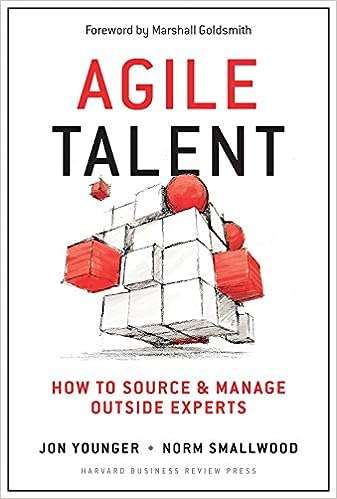
2. Managing to Make a Difference: How to Engage, Retain, and Develop Talent for Maximum Performance
Author – Larry Sternberg and Kim Turnage
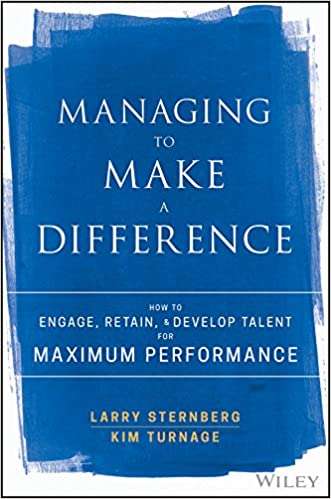
3. The Little Book of Talent: 52 Tips for Improving Your Skills
Author – Daniel Coyle
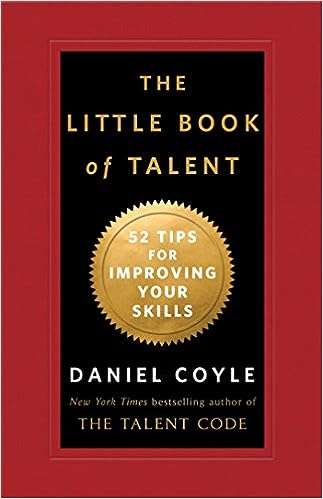
4. The Talent Code: Greatness Isn’t Born. It’s Grown. Here’s How
Author – Daniel Coyle
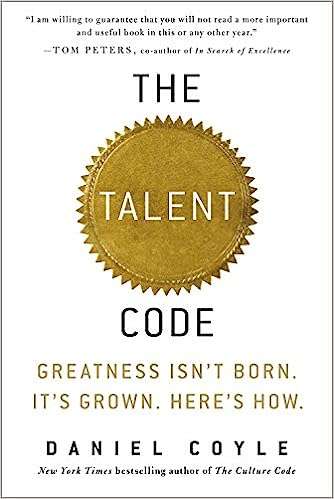
Author – Tom Rath
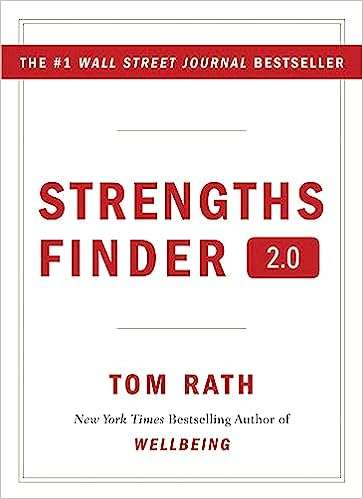
6. The Talent Manifesto: How Disrupting People Strategies Maximizes Business Results
Author – RJ Heckman PH.D.
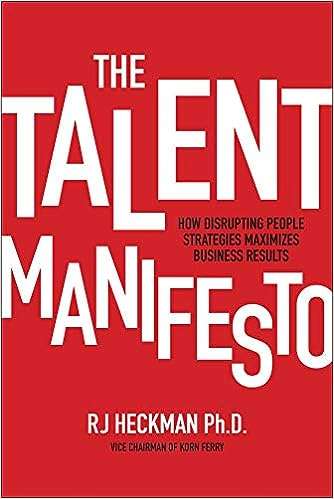
7. Talent Generation: How Visionary Organizations Are Redefining Work and Achieving Greater Success
Author – Sarah L. Sladek
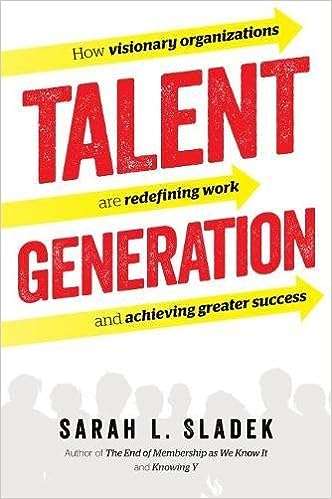
Conclusion
Natural talent is acknowledged and demanded. It gives you success and victory. If you have discovered your talent, well and good but you haven’t, do it now. Remember that you can’t see and touch your talent. “Talent is like electricity. We don’t understand electricity. We use it.” — Maya Angelou. You have to go, recognize, and use it.
Related Posts



